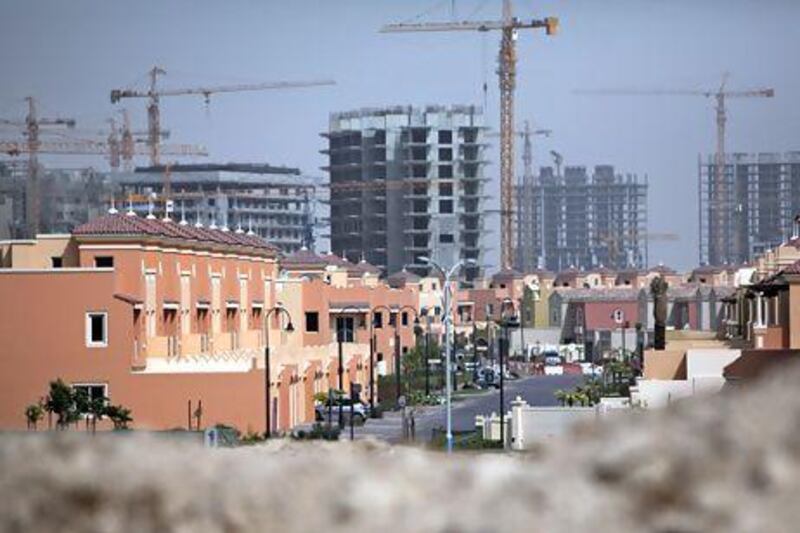After years of plummeting prices and rents, Dubai is once again suffering from a lack of housing supply, a new report from property agent CBRE said yesterday.
The world's biggest property agent says that the number of new homes being built in the emirate has slowed since 2009, from delivering about 36,000 homes a year to a situation where the emirate is expected to deliver that number over the total period 2013 to 2015 "provided construction delays are minimal".
Housing rents in Dubai rose by an average of 17 per cent over the past 12 months as supply failed to outstrip demand, while rents in some more established parts of the city such as Downtown Dubai, Dubai Marina, The Greens, Jumeirah Beach Residence and Palm Jumeirah increased by as much as 24 per cent year on year.
The news follows four years of rental falls during which average rents for one, two and three-bedroom apartments fell 54 per cent between the fourth quarter of 2008 and the fourth quarter of last year. Rents in prime locations in Dubai were 59 per cent lower than their 2008 peak.
House prices also rose this year because of a lack of supply in some areas. According to the report, prices across the city rose by an average 13 per cent over the year.
However, demand was patchy with values in more established areas such as The Greens and Downtown Dubai rising by more than 20 per cent while those in some less established areas recorded little or no growth.
CBRE predicted that house prices in Dubai were set to rise next year but added the increases were mostly the result of landlords hiking the rent for new tenants rather than existing ones and would be "unlikely to be sustainable over the long term". "The success of the Dubai real estate market depends on immigration and if we can get back to the levels of net immigration we were seeing in 2004 to 2006 then the picture will be positive," Matthew Green, the head of research and consultancy for the UAE for CBRE Middle East, told a media presentation yesterday.
"With supply levels becoming increasingly tight in popular community areas, further sales launches are anticipated during 2013."
Within just a couple of hours he was proved right when Emaar Properties and Dubai Holding unveiled plans for a new Dubai Hills gated community villa scheme, which they said would be the first project to be developed within the Mohammed bin Rashid City district announced by Sheikh Mohammed bin Rashid, Vice President of the UAE and Ruler of Dubai, last month.
The project is slated to include the world's largest mall, 100 hotels and gardens larger than London's Hyde Park.
The developers did not say how many mansions the new scheme would comprise but added that villas would be set on plots of 20,000 to 30,000 square feet on land between Emirates Road and Al Khail Road. They will be built around a golf course and the project will be based on Emaar's Emirates Hills scheme.





